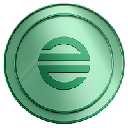-
 Bitcoin
Bitcoin
$93,877.2122
-0.46% -
 Ethereum
Ethereum
$3,238.2192
-0.23% -
 XRP
XRP
$2.4972
6.05% -
 Tether USDt
Tether USDt
$0.9995
-0.02% -
 BNB
BNB
$691.7711
-0.45% -
 Solana
Solana
$185.8059
0.28% -
 Dogecoin
Dogecoin
$0.3358
0.54% -
 USDC
USDC
$0.9999
0.00% -
 Cardano
Cardano
$0.9923
7.45% -
 TRON
TRON
$0.2366
-2.38% -
 Avalanche
Avalanche
$36.5321
0.43% -
 Sui
Sui
$4.8067
-3.80% -
 Toncoin
Toncoin
$5.3352
-0.43% -
 Stellar
Stellar
$0.4303
5.38% -
 Shiba Inu
Shiba Inu
$0.0000
-2.11% -
 Chainlink
Chainlink
$19.8883
-0.43% -
 Hedera
Hedera
$0.2811
0.67% -
 Polkadot
Polkadot
$6.6577
0.22% -
 Bitget Token
Bitget Token
$7.2591
1.31% -
 Bitcoin Cash
Bitcoin Cash
$438.1349
-0.27% -
 UNUS SED LEO
UNUS SED LEO
$9.2838
-0.79% -
 Uniswap
Uniswap
$13.6020
-0.34% -
 Litecoin
Litecoin
$102.9786
-0.84% -
 Pepe
Pepe
$0.0000
-1.35% -
 Hyperliquid
Hyperliquid
$20.8517
4.27% -
 NEAR Protocol
NEAR Protocol
$4.9957
-0.56% -
 Ethena USDe
Ethena USDe
$0.9994
0.01% -
 Dai
Dai
$1.0000
-0.02% -
 Aptos
Aptos
$8.8940
-0.23% -
 Internet Computer
Internet Computer
$10.2658
0.69%
What Is Decentralized Social Media?
Decentralized social media platforms, such as Mastodon, Steemit, Minds, Diaspora, and Hubski, empower users with enhanced privacy, transparency, resistance to censorship, and community ownership.
Dec 17, 2024 at 01:51 am
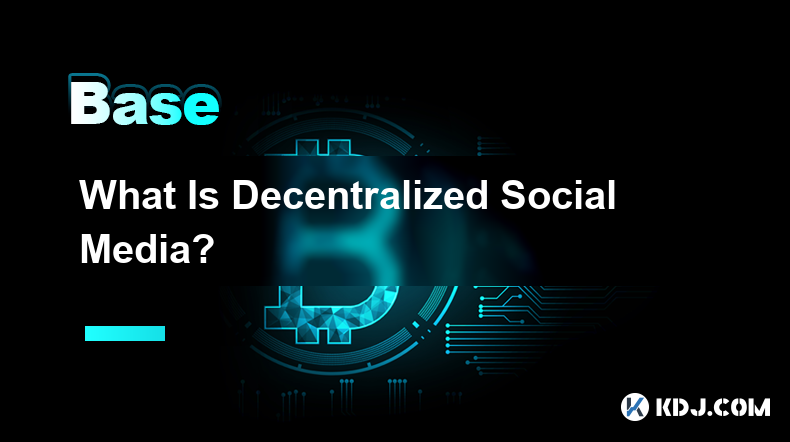
Key Points:
- Essence of Decentralized Social Media
- Benefits of Decentralized Social Media
- Major Decentralized Social Media Platforms
- Comparison of Platforms
- Challenges and Future Prospects
Essence of Decentralized Social Media
Decentralized social media refers to social media platforms that operate on a decentralized network, unlike traditional centralized platforms like Facebook and Twitter. In this architecture, ownership and control are distributed among users, fostering autonomy and reducing censorship. Users have direct ownership over their data, content, and interactions, empowering them with privacy and security.
Benefits of Decentralized Social Media
- Enhanced Privacy: User data, conversations, and interactions remain private and secure, free from the prying eyes of corporations or malicious actors.
- Transparency and Trust: The decentralized nature ensures verifiable transactions and transparent governance, minimizing fraud and abuse.
- Resistance to Censorship: Platforms do not have centralized control, so users cannot be censored or silenced for their views.
- Community Ownership: Users collectively own and manage the platform, enabling them to define the policies and shape the ecosystem.
- Monetization Opportunities: Creators and influencers can monetize their content directly from their followers, without intermediaries taking a substantial cut.
Major Decentralized Social Media Platforms
- Mastodon: A Twitter-like platform with a federated network of servers, where users can create their own communities.
- Steemit: A blogging and social media platform that uses its own cryptocurrency, STEEM, to reward content creators and curators.
- Minds: A privacy-focused social network that allows users to set their own privacy levels and earn rewards for sharing and engaging.
- Diaspora: An open-source, distributed social network where users manage their own servers and are not beholden to a central authority.
- Hubski: A decentralized social networking protocol that allows users to connect different social networks and share content across platforms.
Comparison of Platforms
- Mastodon: Known for its open-source nature, federated architecture, and strong privacy practices.
- Steemit: Differentiated by its cryptocurrency-powered reward system that incentivizes high-quality content creation and curation.
- Minds: Emphasizes privacy and customization, allowing users to control their data sharing and monetization options.
- Diaspora: Provides complete ownership over user data, empowering users to create and manage their own servers.
- Hubski: Enables cross-platform communication and content sharing, promoting interoperability in the decentralized social media ecosystem.
Challenges and Future Prospects
- Scalability and Performance: Decentralized platforms face scalability challenges as they grow in popularity, especially in terms of data storage and processing.
- User Adoption: Attracting a significant user base requires effective onboarding and engagement strategies to overcome the familiarity with traditional platforms.
- Content Moderation: Ensuring a positive and inclusive user experience without censorship is a delicate balance that decentralized platforms must address.
FAQs
- What is the difference between decentralized and centralized social media?
In a centralized platform, a single entity owns and controls the network, while in a decentralized platform, the network is owned and managed by its users.
- Is decentralized social media more private than centralized social media?
Yes, decentralized social media offers enhanced privacy as user data is not stored on centralized servers and is controlled by the users themselves.
- What are the key benefits of using decentralized social media?
Enhanced privacy, transparency, resistance to censorship, community ownership, and monetization opportunities are the main benefits.
- Which decentralized social media platform is the most popular?
Mastodon currently ranks as the most popular decentralized social media platform.
- What are the challenges facing decentralized social media?
Scalability, user adoption, and content moderation are the primary challenges.
Disclaimer:info@kdj.com
The information provided is not trading advice. kdj.com does not assume any responsibility for any investments made based on the information provided in this article. Cryptocurrencies are highly volatile and it is highly recommended that you invest with caution after thorough research!
If you believe that the content used on this website infringes your copyright, please contact us immediately (info@kdj.com) and we will delete it promptly.
-
Dogecoin (DOGE) Enters Historically Bullish Month, Can It Reach $20?
- 2025-01-12 18:45:27
-
Sui Blockchain: A New Standard for Speed, Scalability, and Flexibility in the Crypto World
- 2025-01-12 18:45:27
-
Lightchain AI (LCAI) and TON (TON) Positioned for Explosive Growth as Stellar (XLM) Shines in the Current Crypto Bull Run
- 2025-01-12 18:45:27
-
Lunex Network (LNEX) Token Projected to Hit $0.1 in Q1 2023, Will Outshine Stellar (XLM) and Polkadot (DOT)
- 2025-01-12 18:45:27
-
Dogecoin (DOGE) Predictions & Investment Advice for 2025: From Meme to Market Contender
- 2025-01-12 18:45:27
-
Flockerz Token Presale Passes $9M Milestone with 13 Days Remaining
- 2025-01-12 18:25:28
Related knowledge
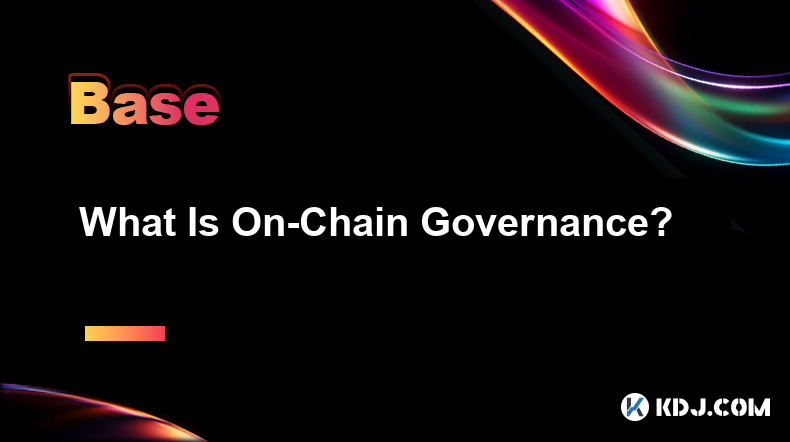
What Is On-Chain Governance?
Dec 17,2024 at 02:35am
Key Points:Definition and Overview of On-Chain Governance: On-chain governance allows stakeholders to directly participate in decision-making processes within a decentralized network, ensuring transparency, accountability, and community involvement. Decisions are tracked and recorded on-chain, providing a verifiable, immutable record.Types of On-Chain G...
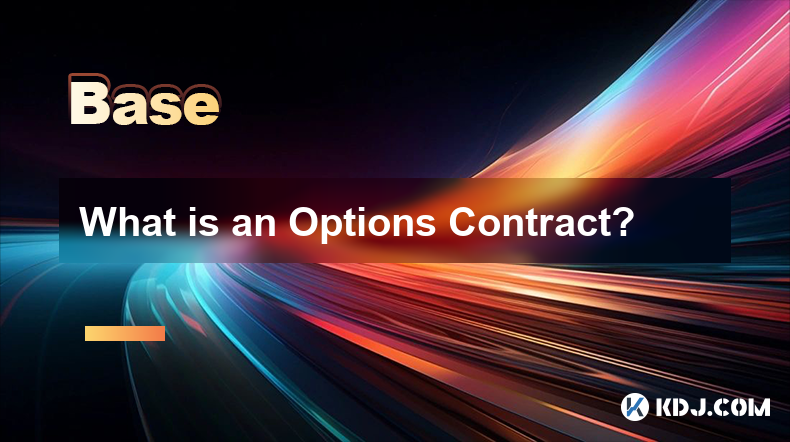
What is an Options Contract?
Dec 17,2024 at 03:36am
Key PointsDefinition of options contractsTypes of options contractsOptions pricing and calculationStrategies for using options in cryptocurrency marketsImportance of understanding risk when trading optionsWhat is an Options Contract?An options contract is a financial instrument that grants the holder the right, but not the obligation, to buy or sell an ...
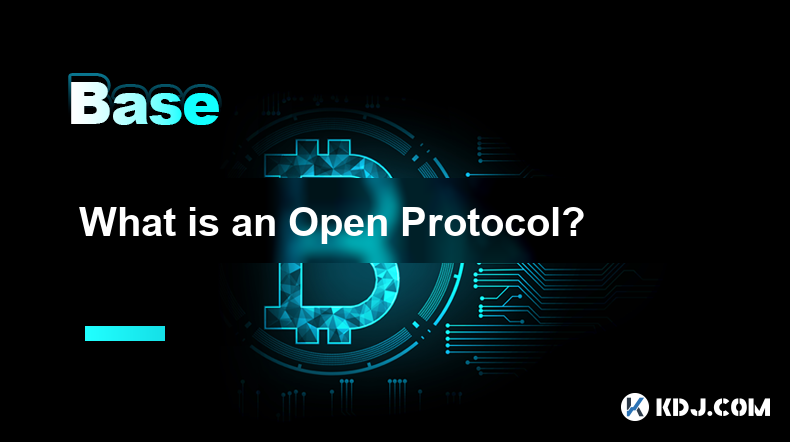
What is an Open Protocol?
Dec 16,2024 at 05:18pm
Key Points:Definition of an open protocolCharacteristics of open protocolsBenefits of using open protocolsExamples of open protocols in the cryptocurrency industryHow to select and evaluate open protocolsWhat is an Open Protocol?An open protocol is a set of rules and procedures that define how computers communicate and share data. Open protocols are dev...
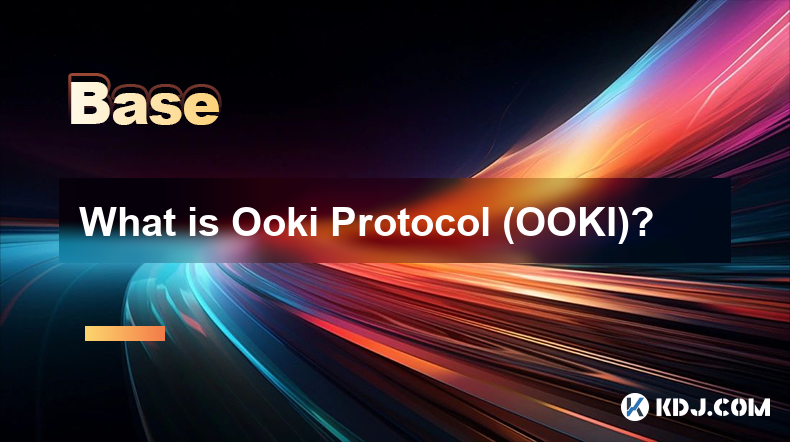
What is Ooki Protocol (OOKI)?
Dec 16,2024 at 04:06pm
Key PointsIntroduction and Overview of Ooki ProtocolOoki DAO Governance, OOKI Token Utility, and Supply DistributionKey Features of Ooki Protocol: Lending, Borrowing, and Flash LoansStaking and Rewards in Ooki ProtocolMarket Analysis, Price Prediction, and Tokenomics of OOKISecurity Aspects, Audits, and Insurance of Ooki ProtocolComparison of Ooki Proto...
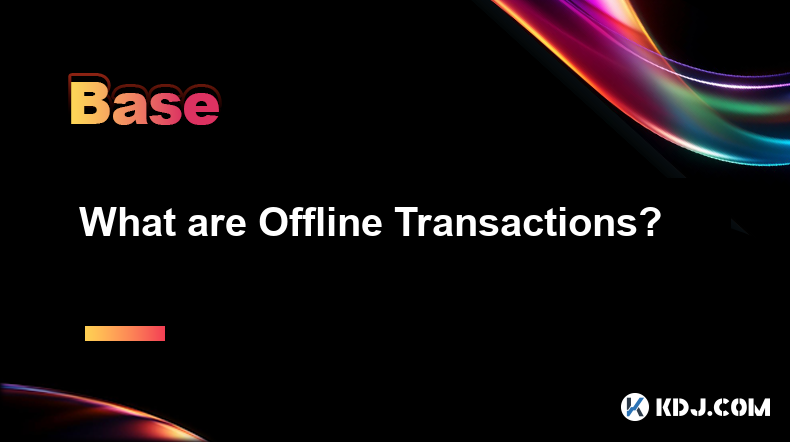
What are Offline Transactions?
Dec 19,2024 at 08:48am
What are Offline Transactions?Key Points:Offline transactions are cryptocurrency transactions that occur without the need for an internet connection.Offline transactions differ from online transactions in terms of transaction speed, security, and privacy.Various methods can be utilized to conduct offline transactions, such as QR codes, NFC, and paper wa...
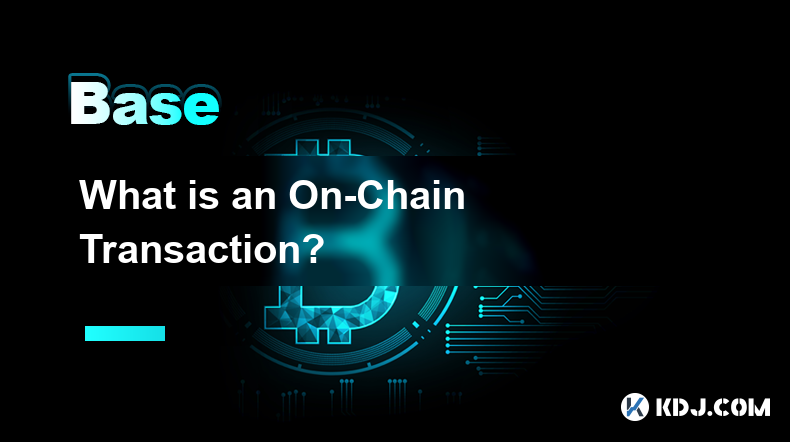
What is an On-Chain Transaction?
Dec 17,2024 at 02:26pm
Key Points:Definition of an on-chain transactionTypes of on-chain transactionsBenefits and drawbacks of on-chain transactionsHow to initiate an on-chain transactionOn-chain transaction feesWhat is an On-Chain Transaction?In the realm of cryptocurrencies, transactions occur in two distinct domains: on-chain and off-chain. An on-chain transaction, as the ...

What Is On-Chain Governance?
Dec 17,2024 at 02:35am
Key Points:Definition and Overview of On-Chain Governance: On-chain governance allows stakeholders to directly participate in decision-making processes within a decentralized network, ensuring transparency, accountability, and community involvement. Decisions are tracked and recorded on-chain, providing a verifiable, immutable record.Types of On-Chain G...

What is an Options Contract?
Dec 17,2024 at 03:36am
Key PointsDefinition of options contractsTypes of options contractsOptions pricing and calculationStrategies for using options in cryptocurrency marketsImportance of understanding risk when trading optionsWhat is an Options Contract?An options contract is a financial instrument that grants the holder the right, but not the obligation, to buy or sell an ...

What is an Open Protocol?
Dec 16,2024 at 05:18pm
Key Points:Definition of an open protocolCharacteristics of open protocolsBenefits of using open protocolsExamples of open protocols in the cryptocurrency industryHow to select and evaluate open protocolsWhat is an Open Protocol?An open protocol is a set of rules and procedures that define how computers communicate and share data. Open protocols are dev...

What is Ooki Protocol (OOKI)?
Dec 16,2024 at 04:06pm
Key PointsIntroduction and Overview of Ooki ProtocolOoki DAO Governance, OOKI Token Utility, and Supply DistributionKey Features of Ooki Protocol: Lending, Borrowing, and Flash LoansStaking and Rewards in Ooki ProtocolMarket Analysis, Price Prediction, and Tokenomics of OOKISecurity Aspects, Audits, and Insurance of Ooki ProtocolComparison of Ooki Proto...

What are Offline Transactions?
Dec 19,2024 at 08:48am
What are Offline Transactions?Key Points:Offline transactions are cryptocurrency transactions that occur without the need for an internet connection.Offline transactions differ from online transactions in terms of transaction speed, security, and privacy.Various methods can be utilized to conduct offline transactions, such as QR codes, NFC, and paper wa...

What is an On-Chain Transaction?
Dec 17,2024 at 02:26pm
Key Points:Definition of an on-chain transactionTypes of on-chain transactionsBenefits and drawbacks of on-chain transactionsHow to initiate an on-chain transactionOn-chain transaction feesWhat is an On-Chain Transaction?In the realm of cryptocurrencies, transactions occur in two distinct domains: on-chain and off-chain. An on-chain transaction, as the ...
See all articles








































